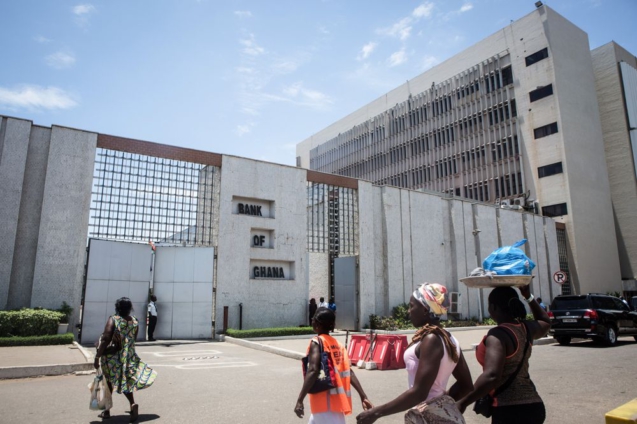Total Non-Performing Loans (NPLs) contracted further by 4.5 percent to GH¢6.33 billion in February 2020, following a decline of 14.4 percent a year earlier, Bank of Ghana’ banking sector report has stated.
According to the report, the positive effect of the decline in the stock of NPLs on the NPL ratio underpinned by the rebound in gross credit. This resulted in a decline in the NPL ratio to 13.8 percent February 2020 from 18.2 percent in February 2019.
Consequently, the industry’s NPL ratio adjusted for fully provisioned loan loss category also declined from 9.4 percent to 5.2 percent. The distribution of NPLs among borrower groups reflected both the share of credits and the risk dynamics of these groups.
Accordingly, the higher share of private sector loans translated to a larger share of NPLs due to the generally higher risk profile of the private sector. This also reflected in the sub-components of the private sector.
NPLs of indigenous enterprises accounted for almost three quarters of total NPLs although banks halved credit to this segment due to their relatively higher credit risk.
Foreign enterprises, households or individuals, and government accounted for relatively lower respective shares of 9.2 percent, 7.9 percent, and 2.7 percent due to their lower credit allocation and better credit risk profiles.
The decline in the industry NPL ratio broadly reflected the trends in NPL ratios across the various sectors.
There was broad improvement in the NPL ratios across most of the sectors, except for the mining & quarrying and the transportation, storage & communication sectors. In particular, sectors with the highest NPL ratios in the industry recorded significant improvements in asset quality within the review period.
The NPL ratio declined from 42.3 percent to 23.8 percent for the electricity, water & gas sector and from 34.1 percent to 23.6 percent for the agricultural, forestry & fishing sector were by the Transport, storage & communication, services and the mining & quarrying sectors recorded the lowest NPL ratios of 8.8 percent, 9.2 percent, and 12.0 percent respectively.
The report also stated that the industry’s loan to-deposit ratio (gross loans to total deposits), a key measure of financial intermediation, increased from 51 percent to 55 percent over the two comparative periods. This indicates deepening financial intermediation.
Banks increased borrowings to support credit growth. In line with the rebound in credit, and with credit growth outstripping growth in deposits, banks had to rely on additional borrowings to support credit expansion. Accordingly, total borrowings increased by 30.7 percent compared with the decline of 6.3 percent in the prior year.
The growth in borrowings however came mainly from the short-term end, with short-term domestic and short-term foreign borrowings accounting for about 98 percent of the increase.
Latest Stories
-
GPL 2024/25: Bibiani GoldStars to play Medeama in coronation match
6 minutes -
GoldBod at the heart of Mahama’s economic recovery plan – Sammy Gyamfi
24 minutes -
Use innovative ways to clear power sector debt, not imposition of GH₵1 fuel levy – COPEC to Gov’t
33 minutes -
COMAC: Local fuel tax impact worse than global price surge
54 minutes -
Gideon Boako engages Tano North Assembly heads to drive development agenda
1 hour -
Ghana needs education, proper application of laws to curb disinformation, misinformation – GIGF
1 hour -
Today’s Front pages: Tuesday, June 10, 2025
1 hour -
Explore sustainable options before enforcing styrofoam ban – EPA advises government
2 hours -
GoldBod has stakeholder support to curb smuggling, reform gold trade – Sammy Gyamfi
2 hours -
Fuel tax uproar reflects poor engagement with public – Minority
2 hours -
Lordina Foundation holds third quarterly health screening for Assemblies of God retirees
2 hours -
Let’s support PHDC to deliver ‘critical’ Petroleum Hub Project – Speaker Bagbin
2 hours -
Ghana engages US on AGOA renewal, tariffs and trade balance amid ‘America First’ push
2 hours -
COPEC calls for stakeholder forum on new Petroleum Levy
2 hours -
Strike: ‘Blame govt if lives are lost’ – GRNMA to Ghanaians
2 hours

